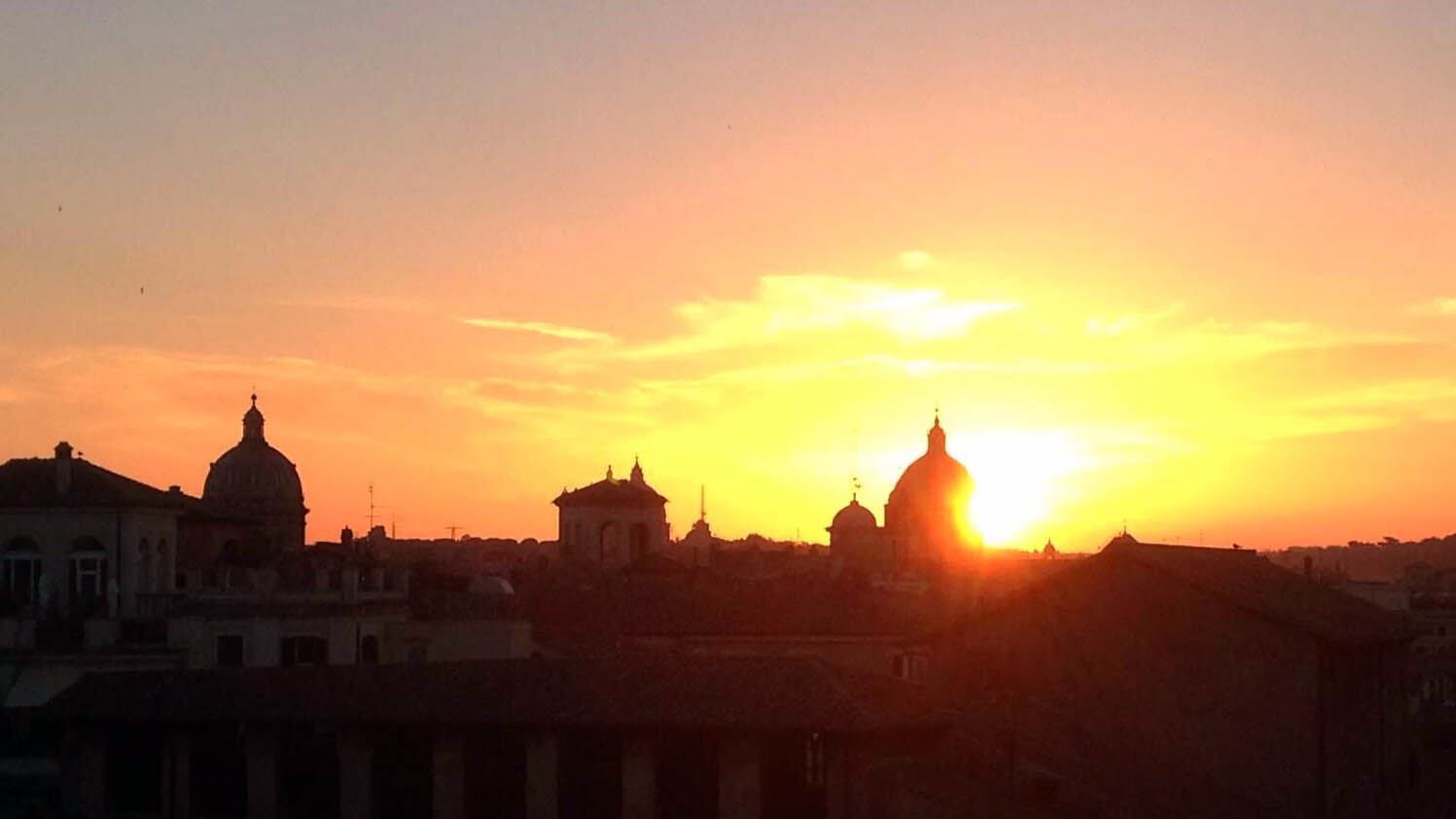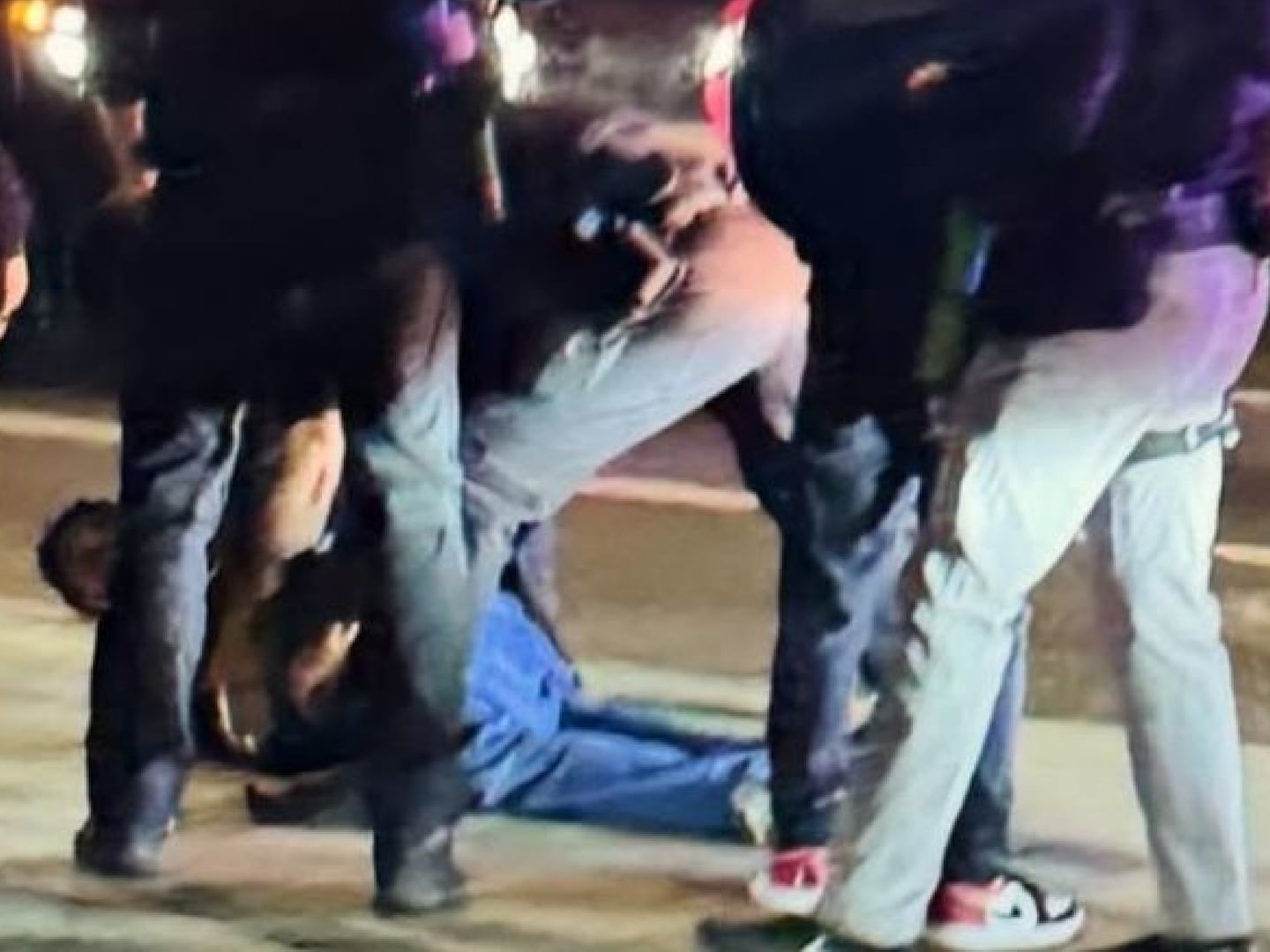I usually get butterflies in my stomach before a big adventure, and my 2016 study abroad trip to Rome is no exception. Most of it is the usual mix of nerves and excitement—I wouldn’t travel if I didn’t love it—but there’s another element as well.
This would be the first time I am outside the country as a transgender person.
When you do a quick Google search of “traveling while trans,” you tend to end up with a list of things that could go wrong: getting held up at the airport, harassed by strangers, more airport horror stories, getting killed. And these are things I know I should be aware of, but none of this is new information. What I’m worried about is the unknown. What is Rome’s queer community like? Are transgender people on their radar? Should I tone down my femininity? Google doesn’t say.
The flight goes about as well as it can—thankfully no horror stories here—and before I know it I find myself in my university's Rome Center, filling out my Declaration of Presence. Nome? Noah. Sesso? Female.
From there I make my way down the narrow cobbled streets to find my apartment, the wheels on my suitcase getting trapped between the stones (sanpietrini) when they aren’t clattering embarrassingly loudly in the quiet residential area. By the time I reach my vine-covered apartment I’ve worked up a good sweat in the humid June heat of the city. I’ve also realized that it’s going to be impossible to wear my chest binder here. I’m not supposed to wear it more than eight hours, certainly not while exerting myself in the heat, and I already know I will probably walk more than I have in my life.

No binder means I’ll have to layer. This works well for me in my Pacific Northwest home, but I foresee a lot of sweaty days in Rome. Thankfully there are constantly-flowing drinking fountains, nicknamed nasoni for their nose-like spouts, all across the city. It takes a few tries to correctly direct the flow of water with my finger over the tip of the spout, but I don’t mind the splashes of water in this heat.
I know my roommates already, and after unpacking and setting up the apartment the three of us make our way back to the bustling Campo de' Fiori for our first lesson. The campo, the name of which literally translates to “field of flowers,” boasts a large open air market in the mornings, as well as restaurants and a small bookstore in the surrounding buildings. My study abroad group is on the roof of one of those buildings, pouring wine and making toasts to the symphony of the city below us. Only a few of those people know that I am trans, and it’s an odd, cloistered feeling. But as I sip my wine in the cool evening air my mood shifts to excited anticipation for the month ahead.
June of 2016 was a big month for Italy’s gay population. On June 5th same-sex civil unions were officially recognized, and the recent victory is obvious from the resulting backlash as I walk through the city in the light of day. The usual graffiti (a surprising amount of it just birds or humanoid figures) is peppered with messages denouncing queer people. I’m not fluent in Italian, and I can’t read it all, but I know enough to get the gist. Seeing that kind of hate in a city which has build up a reputation for being magical and wonderful is a bit like stepping on a shard of glass at the beach. Annoying, painful, unexpected, but unsurprising. And yet the graffiti is also a reminder of the victory Italy’s community has won. A bittersweet reminder, to be sure.

More and more I find myself noticing that jarring Roman mixture of ancient and modern; of graffiti on ruins. There are statues to ancient gods and goddesses mixed in with Catholic imagery and modern storefronts behind every corner. One particular ancient deity, Hermaphroditus, catches my interest. Hermaphroditus was the Greek and Roman deity of unions and androgyny. The story goes that they were once a young boy, but after being assaulted by a jealous nymph his body was merged with hers to create the androgynous deity. Their name was the basis for an outdated medical term for intersex people, and they are one of many historical stories that prove gender has never been simple or binary. I find it somewhat comforting to think about ancient Romans telling Hermaphroditus’ story in this city, their own children learning that the child of Venus and Mercury was neither man nor woman.
On the same day that I learn about my new favorite Roman deity, my friends and I happen on the aptly named Gay Street di Roma, Rome’s tiny gay neighborhood in the shadow of the Colosseum. There we eat at the restaurant Coming Out, which features sandwiches named after types of gay men. I order the Bear (a hamburger) from the strikingly handsome waiter, and he takes our giggled orders with a grin. I’m ecstatic about this new find, even though the district is small and there is no mention of trans people whatsoever. The imagery in the restaurants and stores is largely of muscled, cisgender, white gay men, with the occasional lesbian couple. Being so close to the Colosseum also means that the crowd is largely (straight) tourists. It’s nothing like the queer district back home, but I’m happy nonetheless. It’s the most comfortable I’ve felt in days.
June ends, and July passes in a blur of hot days and travel to monuments throughout Rome and the nearby cities. All too soon my trip is coming to an end, and I spend one of my last nights watching the sun set over the city, the bright oranges and golds illuminating the terracotta rooftops spread out below me like a maze. I am thinking about identity, and community, and how I had anticipated so many problems, most of which never came to fruition simply because of how painfully unaware modern Rome is of trans people. I am invisible, and yet I do not feel alone.

The simple fact is this: queer history and culture is everywhere, and Rome is no exception. I went to this city expecting to feel isolated by my trans identity, but instead I found bittersweet graffiti and deities, restaurants and history. There is an old superstition that if you toss three coins into a Roman fountain you will get married, two for love, and one to return to Rome. I tossed in six. Maybe I will return with my husband some day. We can go to Coming Out and order the Twink.






